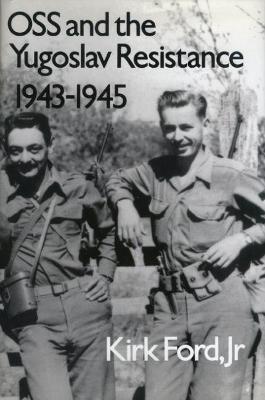During the Second World War few countries provided a more difficult challenge for Gen. Wild Bill Donovan's Office of Strategic Services than did Yugoslavia. Working with its British counterpart, OSS sought to sustain the Yugoslav resistance in its struggle against the Axis occupiers. Unfortunately, OSS personnel, who first began entering the country in the late summer of 1943, found themselves caught up in a ruthless civil war between Draza Mihailovich's Nationalists or Chetniks and Josip-Broz Tito's Partisans.
OSS enjoyed some notable successes, ferrying badly needed supplies to Tito in the fall of 1943, assisiting in the evacuation of hundreds of Allied airmen, and collecting valuable military and political intelligence. On the other hand, President Roosevelt's decision to allow Prime Minister Churchill to play the Allied hand in the Balkans meant that the agency would have almost no influence on Allied policy.
Kirk Ford, Jr., has mined the recently declassified operational records of the OSS and conducted interviews or correspondence with more than sixty of the surviving participants of the events in Yugoslavia. His findings challenge the view of Mihailovich as collaborator and Tito as liberator while shedding new light on both the motives behind Allied policy decisions and the extent to which these decisions affected the internal balance of power in Yugoslavia. By telling the story of the dangers OSS operatives faced behind enemy lines and by tracing the relationship between the OSS and British intelligence, Ford reveals that intrigue, deception, and secrecy were not activities reserved exclusively for the enemy.











